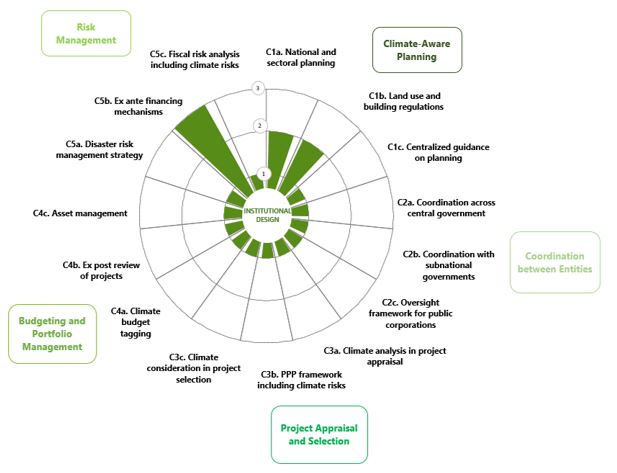Jamaica’s C-PIMA—Boosting Climate Resilience and Supporting the RSF[1]
Jamaica, being a Caribbean island, is highly exposed to multiple natural hazards including tropical cyclones, floods, and droughts. Over the coming decades, as climate change continues to progress, Jamaica is likely to experience more frequent heatwaves and more irregular rainfalls that heighten risks of droughts or flooding, stronger tropical cyclones, and rising sea levels. Transport, energy, and water and sanitation infrastructures concentrated in the coastal areas are particularly vulnerable to the impact from these natural hazards.
In that context, the Fiscal Affairs Department (FAD) of the IMF, at the request of the Government of Jamaica, carried out a Climate Public Investment Management Assessment
(C-PIMA) to assist the government in making public investment more resilient to the impact of climate change.
According to the Jamaica C-PIMA, progress has been made in the development of a comprehensive climate change policy framework and in planning for disaster risk financing. But there are many weaknesses in current policies and practices (see chart below). Notably:
- Neither central nor subnational governments are well positioned strategically to lead investment projects that either adapt to or mitigate the impact of climate change.
- The government’s regulatory and oversight framework does not promote consistency between their climate-related investments and national climate policies even though individual public bodies are identified as contributors to the country’s Nationally Determined Contribution (NDC).
- The government’s public-private partnership framework does not include a mechanism for allocating climate risks between the government and PPP partners.
- The procedures used for appraising and selecting investment projects do not include any climate-related analysis based on a standardized methodology.
- Climate-oriented infrastructure spending in the budget is not tracked.
- Ex-post reviews or external audits of projects’ climate outcomes are not conducted,
- An assessment of climate impact is not integrated into public asset management procedures.
Jamaica: Institutional Strength of C-PIMA Institutions in Jamaica

On these grounds, the C-PIMA assessment makes eight high-priority recommendations which could improve climate-related public investment management in Jamaica and support green and sustainable economic growth.
- Improve the climate informed medium-term fiscal and budget framework to guide budget preparation.
- Strengthen the climate change strategic guidance of planning for capital budgeting.
- Revise the framework for private and public bodies’ participation in climate smart infrastructure.
- Develop climate change project appraisal and selection methodologies and apply them consistently to all projects, regardless of the financing source.
- Publicly disclose more information on green and resilient investment projects in budget documentation.
- Include climate change factors in the ex-post evaluation of investment projects.
- Develop a climate smart asset register and ensure adequate funding for the maintenance of public assets.
- Ensure that the legal framework and staff capacity are supportive of climate change public investment reforms.
The C-PIMA recommendations have informed the design of the reform measures for a recently approved Arrangement Under the Precautionary Liquidity Line and the Resilience and Sustainability Facility. Ultimately, six of the 12 reform measures relate to public investment management and public financial management.
The FAD’s capacity development support did not end there. The Fund will be assisting the authorities in the implementation of these reform measures, in collaboration with other development partners.
[1] The Resilience and Sustainability Facility (RSF) is an IMF instrument that provides affordable long-term financing to countries undertaking reforms that reduce risks to prospective balance of payments stability, including those related to climate change and pandemic preparedness.





